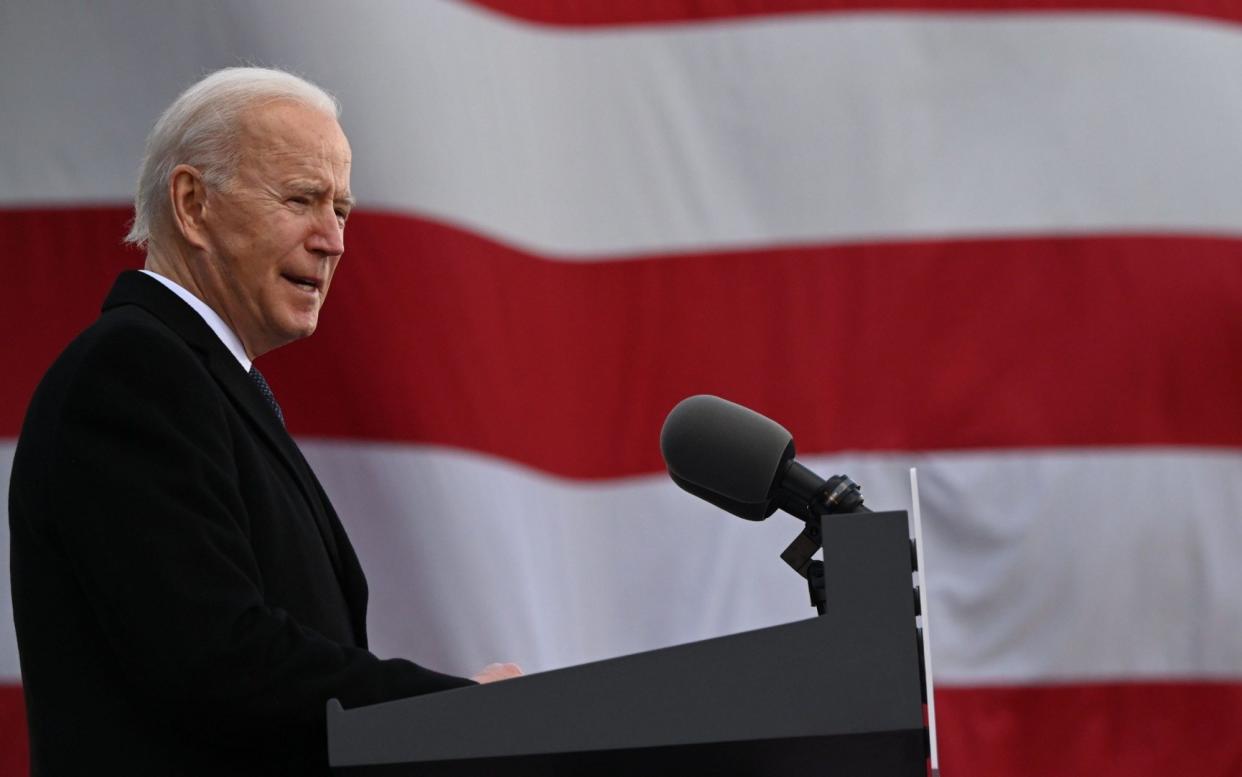US will rejoin WHO in one of first acts of Biden presidency


The United States will rejoin the World Health Organization in one of the first official acts of the Joe Biden presidency, an "incredibly important" move that halts the withdrawal process begun by Donald Trump administration.
Hours after being sworn in as the 46th President of the US, Mr Biden plans to sign a record 17 executive orders reversing decisions on immigration, the environment and the economy made by his predecessor.
Included in this list is an intention to cease the process of withdrawal from the WHO. Last July Donald Trump announced plans to formally cut ties with the UN agency after accusing it of incompetence and being “very China-centric”.
In sharp contrast, the Biden administration described the organisation as “an entity critical to coordinating the international response to Covid-19, advancing preparedness for future epidemics and pandemics, and improving the health of all people”.
Dr Anthony Fauci, the government's top infectious disease expert, is also set to deliver a speech on Thursday to the WHO as head of a US delegation.
Mr Biden's move is no surprise and last summer he pledged the US would rejoin the organisation on his first day as President as “Americans are safer when America is engaged in strengthening global health”.
But experts have said that following through on that promise is significant.
“[It sends] an incredibly important signal about multi-lateralism and the priority this administration is going to put on global health,” Professor Matthew Kavanagh, director of the Global Health Policy and Politics Initiative at Georgetown University, told the Telegraph.
He said Dr Fauci's speech to this week's WHO Executive Board later this week demonstrates a “priority backing for WHO at a moment when the agency deeply needs powerful countries to support it”.
Dr Mark Eccleston-Turner, an expert in global health law at the University of Keele, added that “the fact that this is one of his very first announcements should not be overlooked”.
“It is important to recognise that Trump didn't just withdraw from the WHO, he withdrew support from a number of multilateral institutions,” he said. “If Biden committing to rejoin the WHO is an indication of how his administration will view multilateralism, then it is a very positive step for the future.”
But Dr Eccleston-Turner added that what the US contribution will look like - especially around Covax, the WHO-led initiative to ensure low and middle income countries have access to vaccines - remains to be seen.
Speaking at his confirmation hearing on Tuesday Tony Blinken, Mr Biden's pick for Secretary of State, hinted that the administration would bring the US into the Covax facility, but gave no further details.
“The USA rejoining WHO is very welcomed and encouraging news,” Trudie Lang, professor of global health research at the University of Oxford, told the Telegraph.
“The absence of a key funder and highly influential nation was a huge concern for those of us working in global health research, and so this news comes as a relief in this pivotal moment within this pandemic.
“Let us hope that this news follows with a further commitment to global vaccine supply with the USA signing up to Covax,” she said.
But others have warned that the damage wreaked by Mr Trump could be irreversible.
“Before 2016 the US was obviously a leading actor in global health… but things changed,” said Dr Clare Wenham, assistant professor in global health policy at the London School of Economics.
“The US stopped [leading] and other actors came into that space - Denmark, Scandinavian countries, the UK to a certain extent.... I just don't think it is the same playing field anymore.
“The destruction that the Trump administration has done to global health also has much wider ramifications and I don't countries are just going to welcome the US back,” she added. “I think that's quite a US-centric way of thinking about it.”
A spokesperson for the WHO said: “WHO looks forward to the participation of the delegation of the incoming US administration at the Executive Board meeting tomorrow.”
Protect yourself and your family by learning more about Global Health Security

 Yahoo News
Yahoo News 
